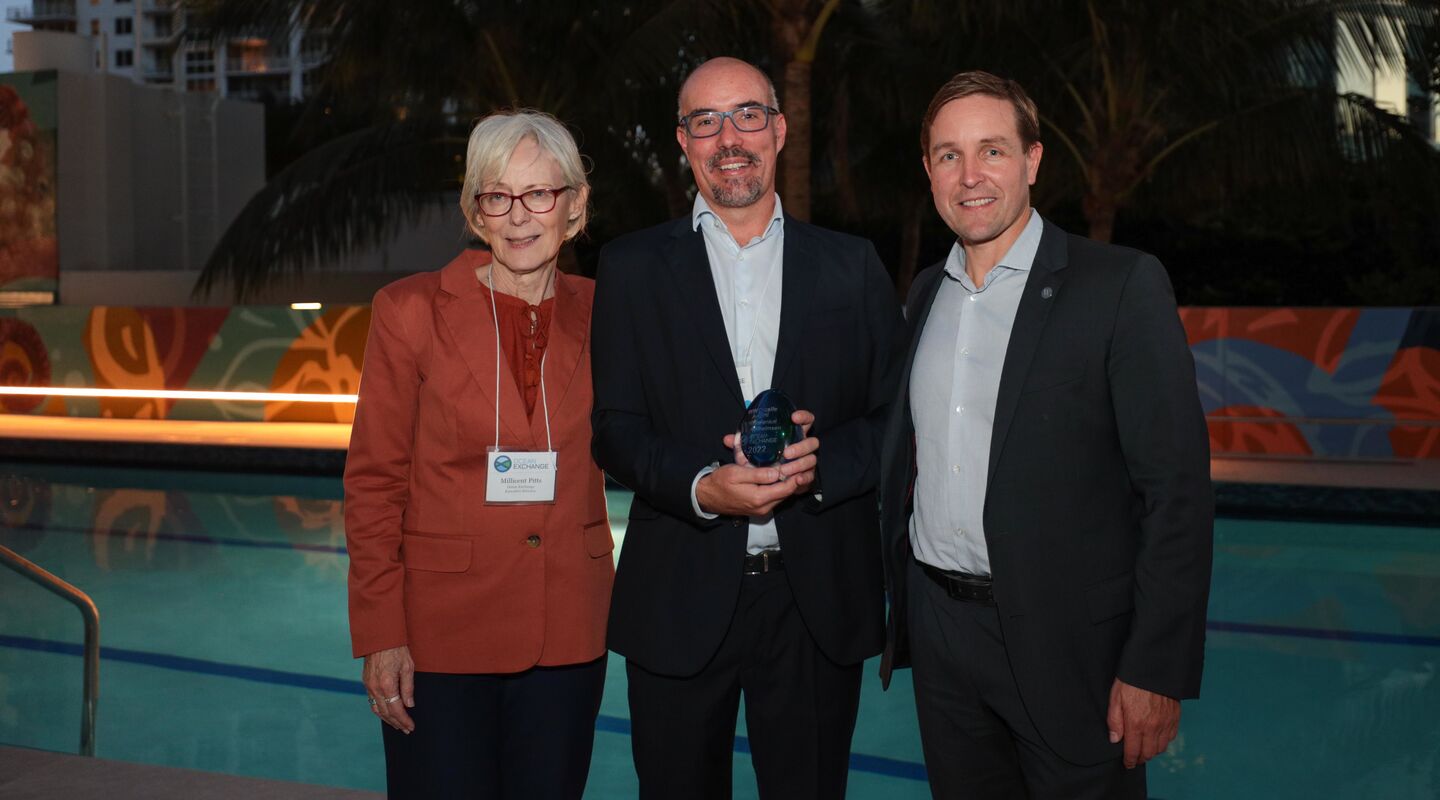BeePlanet Factory wins 2022 Orcelle Award
Spanish-based startup BeePlanet Factory won the 2022 Orcelle Award as part of the sustainable innovation forum, Ocean Exchange, which took place in Fort Lauderdale, Florida.

BeePlanet Factory’s CEO and Co-founder, Jon Asin, made the winning pitch at Ocean Exchange to receive the award. “It is a dream for us to have won this award,” says Jon. “Many thanks to Wallenius Wilhelmsen as a sponsor of the Orcelle Award, as well as to the rest of the sponsors and the delegates for having selected our project among the rest of the innovative finalists.”
BeePlanet Factory has a versatile and powerful green energy solution that’s based around creating a second life for electric vehicle batteries, which provides an intriguing fit with some of our own strategic interests surrounding fleet management and electric vehicles.
As a long-term sponsor, Wallenius Wilhelmsen is delighted with how “Ocean Exchange has become a wellspring for sustainable innovation with truly global reach. The strength in depth and variety of the solutions it brings us, both on land and at sea, is critical to fulfilling our purpose of sustainable logistics for a world in motion.” says Roger Strevens, VP of Global Sustainability at Wallenius Wilhelmsen.
BeePlanet Factory currently manufactures second life lithium-ion energy storage systems from 4kWh to +1MWh capacity with different applications for a variety of different commercial and industrial sectors, including solutions to address growing electric vehicle rapid charging needs. The aim is to provide a more affordable and sustainable energy solution, while also extending the working life of electric vehicle batteries.
With the $100,000 USD that comes with the Orcelle Award, Jon and the rest of the BeePlanet Factory team plan to refine their battery design to meet UL standards, which they will need to enter the North American market. They are also looking at running a pilot based on their current operations to see how their batteries would interact in an existing EV charging ecosystem.